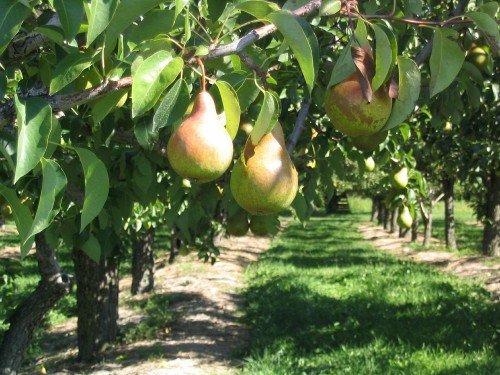‘But the fruit of the Spirit is love, joy, peace, patience, kindness, goodness, faithfulness, gentleness and self-control ‘ (Galatians 5:22-23)
As we seek to persuade people of the truth and efficacy of the gospel we need to bear some things in mind. Firstly, it is only the power of the Holy Spirit that can prevail on people to believe.
Secondly, for the Christian believing means more than giving intellectual assent to doctrine. It has to be more than just acknowledging the truth, because in James 2:19 we read, ‘You believe that there is one God. Good! Even the demons believe that – and shudder’.
It is possible to be intellectually convinced of the soundness of an argument and even be convicted of one’s condition before God, and yet not be converted.
Thirdly, there has to be a credible connection between what we proclaim and what we practise. If our belief and behaviour are not consistent then we bring the gospel into disrepute. Our lives must be consistent with our message if we are to have credibility. Thus there is a great need for evident fruit of the Spirit.
Integrity influences others
We cannot underestimate the importance of the integrity of the believer. His moral character will influence how the message itself is perceived. Augustine said, ‘The life of the speaker has greater weight in determining whether he is obediently heard than any grandness of eloquence’ (On Christian doctrine, 4.27.59).
Certainly a lack of integrity undermines credibility. There is a connection between proclamation and practice – the moral stature of the messenger affects the reception of the message.
In short, people are more likely to heed what they hear from messengers whose integrity is manifested through the fruit of the Spirit.
In Galatians 5:22-23 Paul is giving us a profile of true Christian character. Such character is as commendable in our generation as it was to the Galatians in theirs. Here is holiness honed down to its essential features.
God’s purposes are fulfilled not only in our salvation, which brings glory to God, but also in our sanctification, which also brings glory to God. Christ died for us – but he also lived for us a life that perfectly demonstrated the fruit of the Spirit.
In so doing he set an example for us to follow. When we look at this list of graces we are forced to conclude that such virtues are needed today.
What is fruit?
A healthy tree in its annual cycle will have foliage, flowers and fruit. One obvious means of identifying a tree is to see it bearing a particular kind of fruit. An apple tree bears apples, a pear tree bears pears and so on. Fruit is an organic part of the life of the tree.
But although it is beautiful to look at and certainly enhances the appearance of the tree, fruit is not merely decorative.

Fruit is the seed-bearing part of a tree or plant. It is an ovary enclosing its seed. The principal botanical purpose of fruit is to protect and disseminate that seed. In the horticultural sense, fruit is designed to protect the seed and ensure the propagation of the species.
There are several parallels between the botanical and spiritual functions of fruit. By nature, man is spiritually dead and needs to be regenerated through the power of God. This happens when God impregnates the hearts of people with the seed of his Word, which brings forth the fruit of regeneration (1 Peter 1:23).
An intrinsic part of that regeneration is God’s gift of the Holy Spirit to dwell in the hearts of those whom he draws to himself in faith and repentance. The fruit of the Spirit is thus both the product and the proof of regeneration.
Furthermore, like natural fruit, the fruit of the Spirit protects and promotes the seed of the Word, ensuring that the believer remains secure in his soul and fruitful in his witness (read 2 Peter 1:5-11).
Pure or poisoned?
Every person bears fruit of one kind or another. The unregenerate person is controlled by his sinful nature and bears fruit in accordance with that nature. In Galatians 5, Paul contrasts ‘walking in the flesh’ with ‘walking in the Spirit’.
His point is that the Lordship of one’s life is evident in the type of fruit produced. The believer is not without sin, but he nevertheless has a heart that is tender to the things of God – repentant when sin is committed and open to the influence of the Holy Spirit. Although the Christian always retains the capacity to sin, the inclination is diminished and the ‘pleasure’ of sin becomes sour and unpalatable.
Only the regenerate can bear the fruit of the Holy Spirit. As Paul states in his letter to the Romans: ‘So, my brothers, you also died to the law through the body of Christ, that you might belong to another, to him who was raised from the dead, in order that we might bear fruit to God.
‘For when we were controlled by the sinful nature, the sinful passions aroused by the law were at work in our bodies, so that we bore fruit for death. But now, by dying to what once bound us, we have been released from the law so that we serve in the new way of the Spirit, and not in the old way of the written code’ (7:4-6).
A form of fruit
Unregenerate mankind may still bear traces of the likeness of God in his fallen spirit. In some measure, and sometimes to a significant degree, he can manifest a form of fruit – a form of love, joy, peace, patience, kindness, goodness, faithfulness, gentleness and self-control.
In saying this we are not denying the total depravity of man, nor are we asserting that there is anything meritorious in fallen human nature. But it would be churlish to deny that non-Christians have some capacity in relation to these qualities.
Nevertheless it is only in the life of those who have been regenerated by the Spirit of God that these fruit are truly manifest as God intended. What we are looking for in the lives of believers is not human love but divine love – ‘the love of God … poured out in our hearts by the Holy Spirit who was given to us’ (Romans 5:5). The same applies to the remaining fruit.
One might object to such a statement and say that surely every human being knows what it is to love and be loved – to know joy and peace or at least recognise these qualities as desirable and aspire toward achieving such moral ideals.
Surely it is not only Christians who are patient, kind and good, nor do the followers of Christ have a monopoly on faithfulness, gentleness and self-control (in fact one could point to many Christians who do not manifest such qualities to an admirable degree).
Sadly we admit that we are not what we should be but we also thank God that we are not what we were. More importantly, we are becoming what God wants us to be, namely, those who manifest divine attributes in our lives – not the fruit of human nature, no matter how noble that may be.
A qualitative difference
The full potential to experience and exhibit such qualities cannot ever be realised outside of Christ. The non-Christian may protest, but we would counter by saying that what they know to be love is not measured by the ultimate standard of love.
We would say that what the world calls peace is a poor thing in comparison to the peace that God gives in Christ, and so we could continue.
Perhaps the point can be illustrated like this: a life-sized cardboard cut-out of a person may be a good likeness of that person but it is infinitely less and indeed entirely other than the three-dimensional reality of the person’s real presence.
It may be lifelike insofar as it closely resembles the person represented. Nevertheless it is, in fact, lifeless. It is dead, unconscious and lacking movement and vitality. Even where the image is animated, say for example, in a video, it is still only an image of reality.
Stealing God’s glory
The reality is that many unbelievers who have been loving, kind, patient, peace-loving, and so on, are remembered and revered for such traits themselves and do not give glory to God.
Martin Luther in his commentary on Galatians said that the disciples of Jesus ‘bring with them most excellent fruits and maximum usefulness, for they that have them give glory to God, and with the same do allure and provoke others to embrace the doctrine and faith of Christ’.
The fruit of the Spirit is not only for our good – it is also and ultimately for the glory of the Almighty. Conversion may not instantly produce such fruit but it should eventually. May we know more and more of such grace in our lives!














